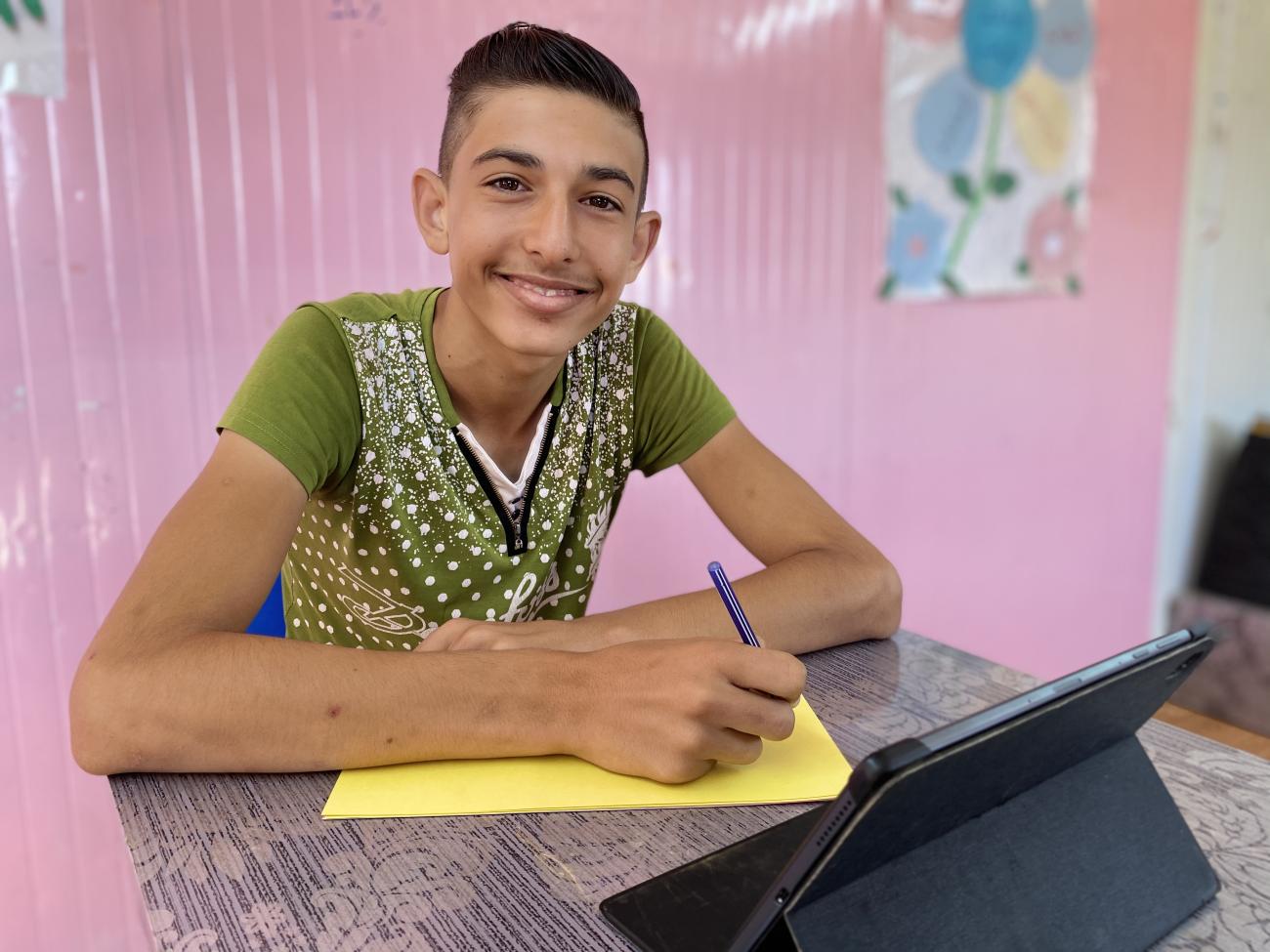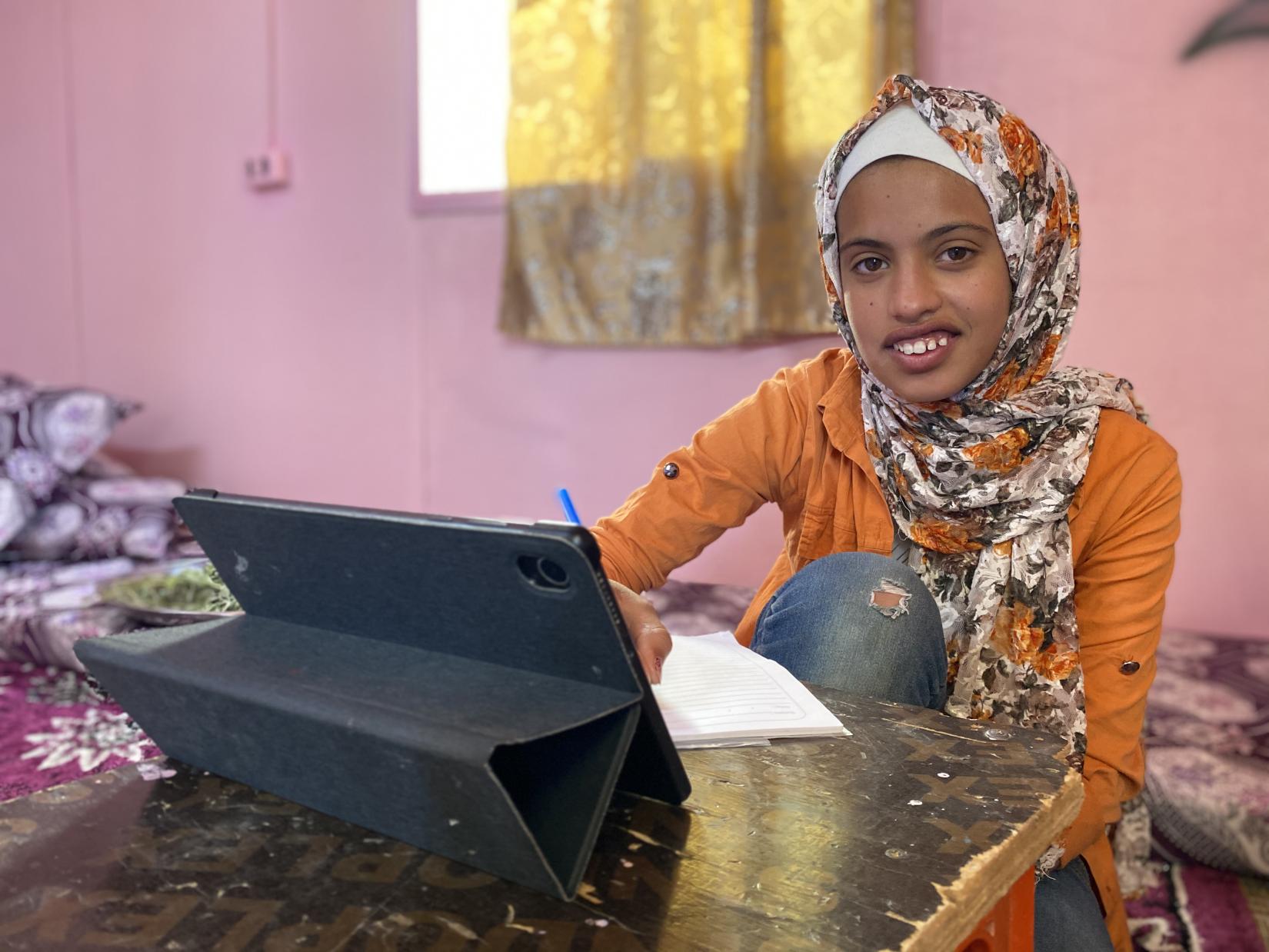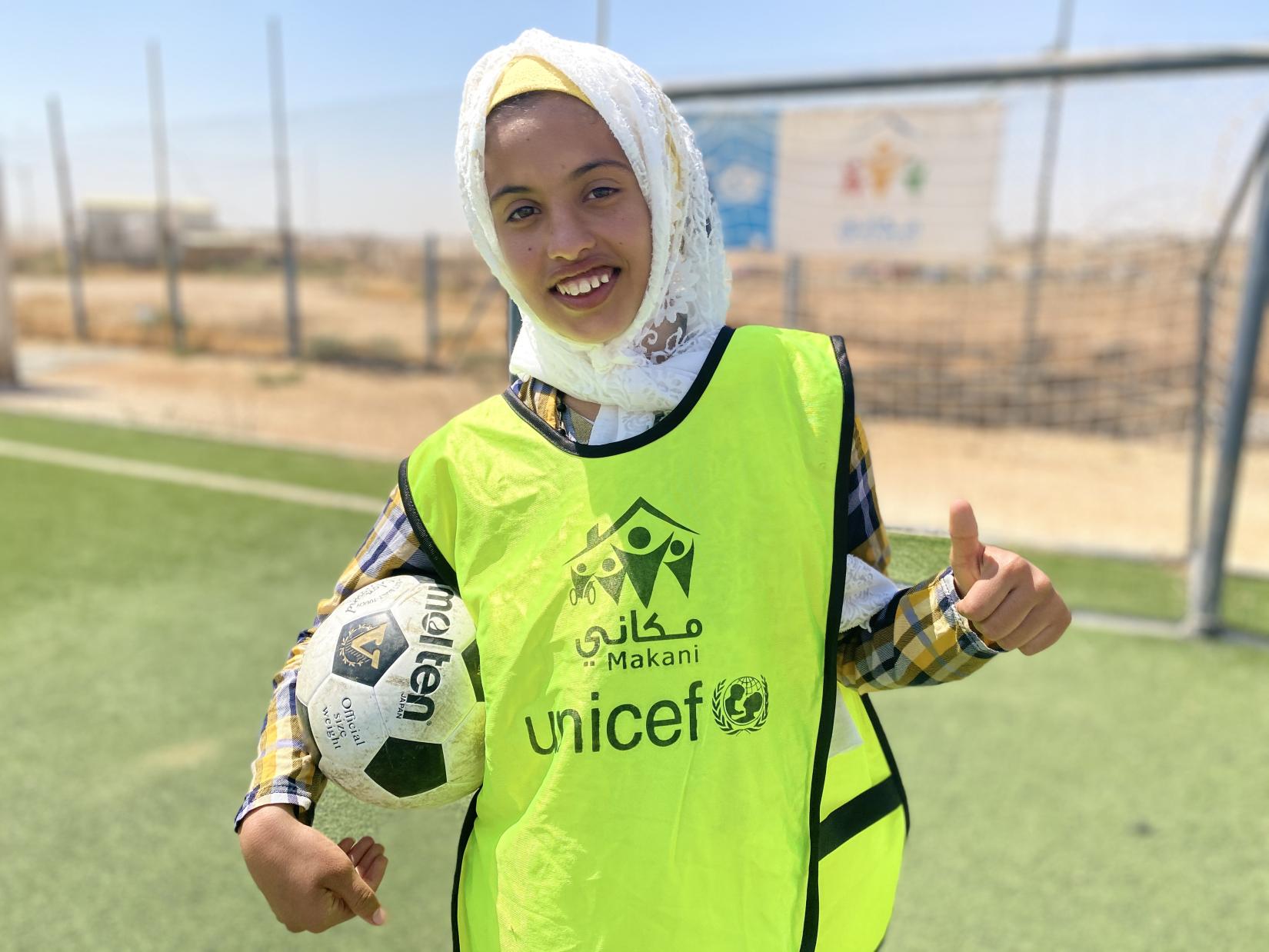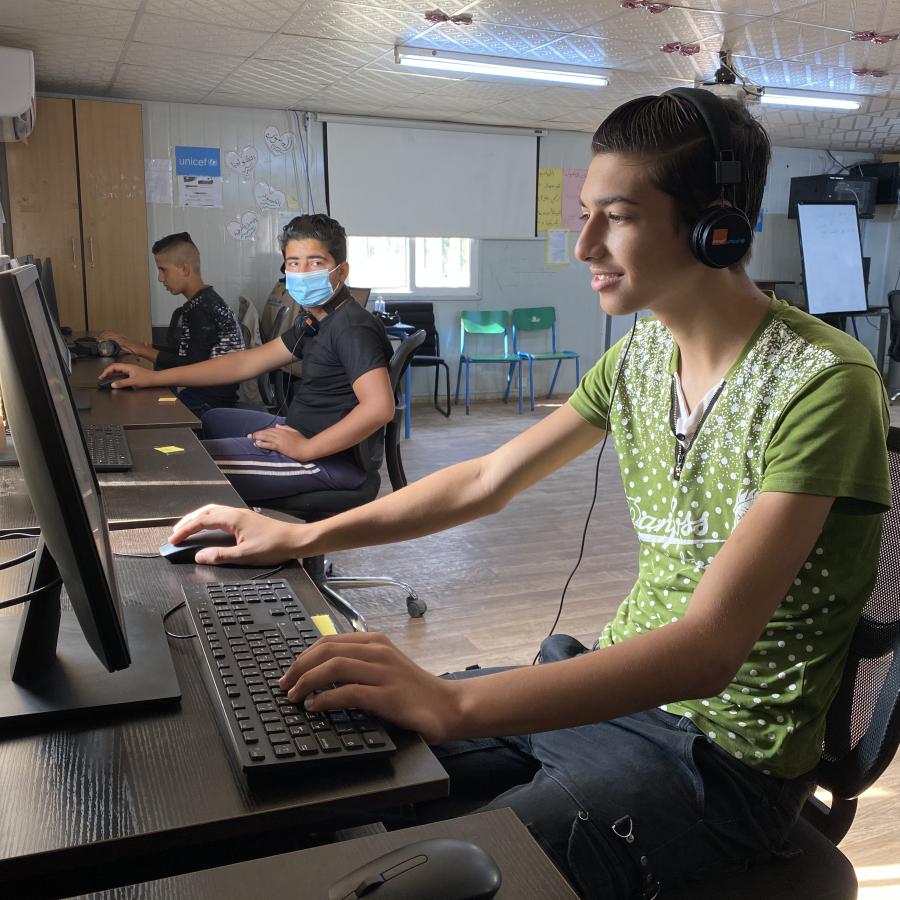Determined to reimagine a better world: Syrian refugee adolescents’ beliefs in the importance of education

For Syrian refugee children residing in Jordan, like all children around the world, the pandemic has negatively impacted their lives.
For many children, the COVID-19 pandemic is messing their world. No country has been able to stop the spread of the virus completely. Yet, some countries have succeeded in slowing down the spread of new infections, enabling their children to return back to safe schools.
For Syrian refugee children residing in Jordan, like all children around the world, the pandemic has negatively impacted their lives. Yet, to them, violence and war created the worse mess.
“The COVID-19 pandemic transformed this world into a turmoil,” says Mazen, 14. “But the impact of the war in Syria was far worse, eroding our lives and separating us from our loved ones and our beloved country.”
During the last 10 years, around 12,000 children were verified as killed or injured due to the war in Syria. This pushed over 90 per cent of Syria’s children into poverty and in need of humanitarian assistance.
“We are safe here” says Mazen pointing to a tiny house made of corrugated iron. “But this is not what I dreamt of.”
Sham, 14 is another adolescent refugee residing in the camp. In 2013, with her family, she escaped the violence in their Syrian hometown Dara’a, and sought shelter at Za’atari refugee camp.
With over 10 years into the war, 3.2 million Syrian children are out-of-school in Syria and neighbouring countries. Nearly 1/3 of Syrian refugee school-aged children residing in neighbouring countries are out-of-school.
“When we left Syria, I was in Grade 1,” recalls Sham. “I only attended school for few days, and my father decided to bring us here.”

Determined to transform their lives
At the camp, adolescents like Mazen and Sham are constantly seeking opportunities to improve their lives.
Both adolescents are enrolled in UNICEF-supported Makani centres, though in different shifts. One shift for girls another for boys. These centres offer adolescents educational opportunities, skills building, sports and recreational activities, which help them to reach their full potential.
“I am so happy that they re-opened the centre, because it provides opportunities to gain respite,” says Mazen. “At the centre, I also strengthen my Arabic, English and math, and I also learn how to use the computer.”
To help adolescent refugee children to continue to learn, UNICEF with generous funding from Abdel Aziz Ghurair Foundation for Education, distributed tablets and supported monthly internet bundles.
“The tablet and the internet bundle helped me to continue my studies online during COVID-19 times,” says Mazen with a smile. “Otherwise, I could not have managed my studies without this tablet.”
Mazen has strong beliefs in the power of education.
“Through education, we can change the world,” says Mazen. “We need to transform this world to a better place for future generations to come.”
As a ninth grader, Sham attends the Makani centre regularly.

“I used to accompany my older sister to Makani centre,” recalls Sham with glitter in her eyes. “This is how I developed the passion to attend Makani centre on a regular basis.”
At the centre, Sham attends Arabic, English and math classes, in addition to computer, arts and sports. The tablet she received with the generous support from Abdel Aziz Ghurair Foundation for Education, helps her to continue her online school studies, and score high in class.
“My passion is football,” says Sham. “I want to become a famous football player like Ronaldo and join Paris-St. Germain Football Club."

Sham’s dreams and ambitions are endless. “I also want to become a child rights lawyer to defend child rights and put an end to children’s misery.
By Monique Awad and Abdel Majid El-Noaimi



